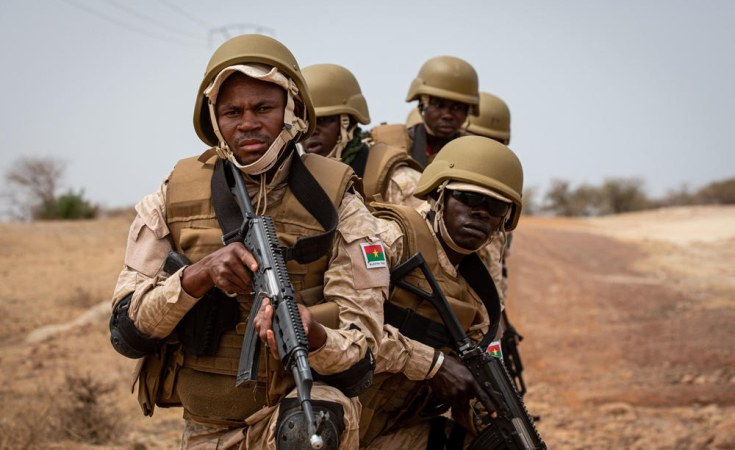Abuja, Nigeria — A high-level Africa counterterrorism summit opened Monday in Nigeria with hundreds of delegates from around the world. Africa has become the world's epicenter of terrorism. Leaders at the summit hope to change that through regional cooperation and partnerships.
The summit was jointly hosted by Nigeria and the United Nations Office of Counter Terrorism (UNOCT) with the aim of strengthening regional security response and cooperation against acts of terror.
"Terrorism snaps at the very fabric of the prosperous and just society we seek to build for ourselves and our children," Nigerian President Bola Tinubu said during remarks at the two-day summit in Abuja. "This violent threat seeks to frighten the farmer from his field, children from their schools, women from the marketplace and families from their very homes. We must therefore fight this threat together, combining determined national effort with well-tailored and regional and international collaboration."
The summit seeks to enhance intelligence sharing among African nations and promote African-led strategies on counterterrorism.
Authorities say it will also serve as a guide to the international community's collective response to terrorism in Africa.
Terrorism and violent extremism are spreading at an alarming rate in Africa. According to a new study by the African Center for Strategic Studies, acts of terror increased by more than 100,000% in the last two decades despite local and foreign intervention.
The report says more than 23,000 people were killed in Africa last year -- a 20% increase compared to 2022.
Ghanaian President Nana Akufo-Addo says fighting terrorism goes beyond a country's borders.
"The evolving nature of terrorism demands a dynamic and coordinated response that transcends national borders and individual efforts," Akufo-Addo said. "These groups are exploiting grievances, vulnerabilities and are manipulating ideologies to spread fear, division and chaos. We recognize the urgent need to combat this menace that continues to threaten the peace, security and development of our continent."
Authorities say the threat of terrorism in Africa is exacerbated by the illicit arms trade, unemployment, poverty, inadequate policing, marginalization and political instability.
For more than a decade, Nigeria has struggled to stem the violence by Boko Haram and its splinter, ISWAP in the northeast.
And more recently, armed gangs known as bandits have been making matters worse.
Nigeria's security adviser Nuhu Ribadu said these factors need to be addressed.
"Effective strategies require comprehensive approaches that address these drivers, promotes socioeconomic development, enhance governance resolve conflict and strengthen regional and international cooperation," Ribadu said.
But getting the funding to do this has been a major challenge in Africa.
Authorities hope to change the narrative for the better. Vladimir Voronkov, undersecretary-general of the UNOCT, stressed the important role African regional organizations have in effectively countering terrorism.
"The success of the United Nations in Africa hinges on our commitment to support Africa-led solutions to African challenges," Voronkov said. "We recognize no single actor can resolve today's threats to peace and security. Instead we need multiple actors working together with solutions grounded with strong national ownership and support of bi-funding partners."
Acts of terror in Africa are largely concentrated in the Sahel, Somalia, the lake Chad basin, North Africa and Mozambique.
Niger, Mali and Burkina Faso were absent from the summit due to coup-related sanctions imposed by ECOWAS and the African Union.
Critics say for counterterrorism measures to be truly successful every country must be involved.


